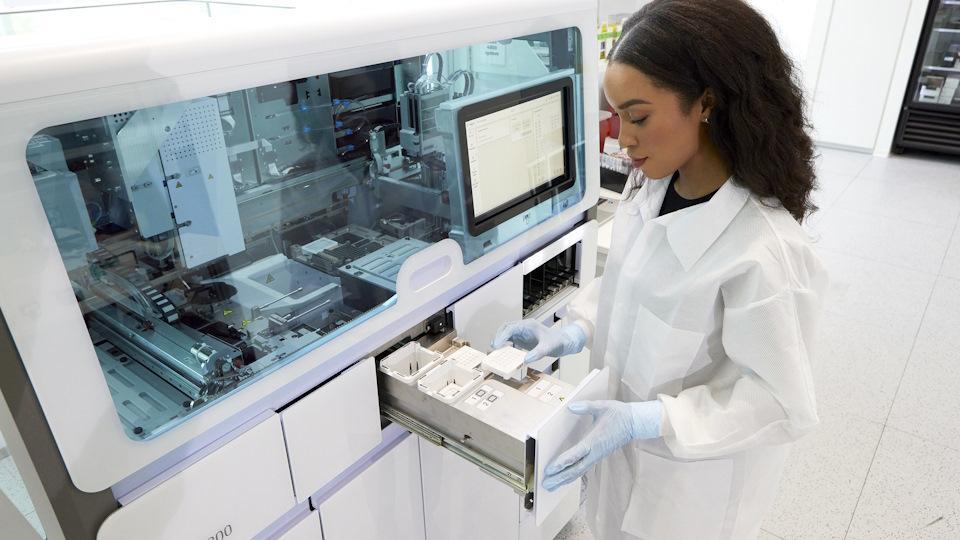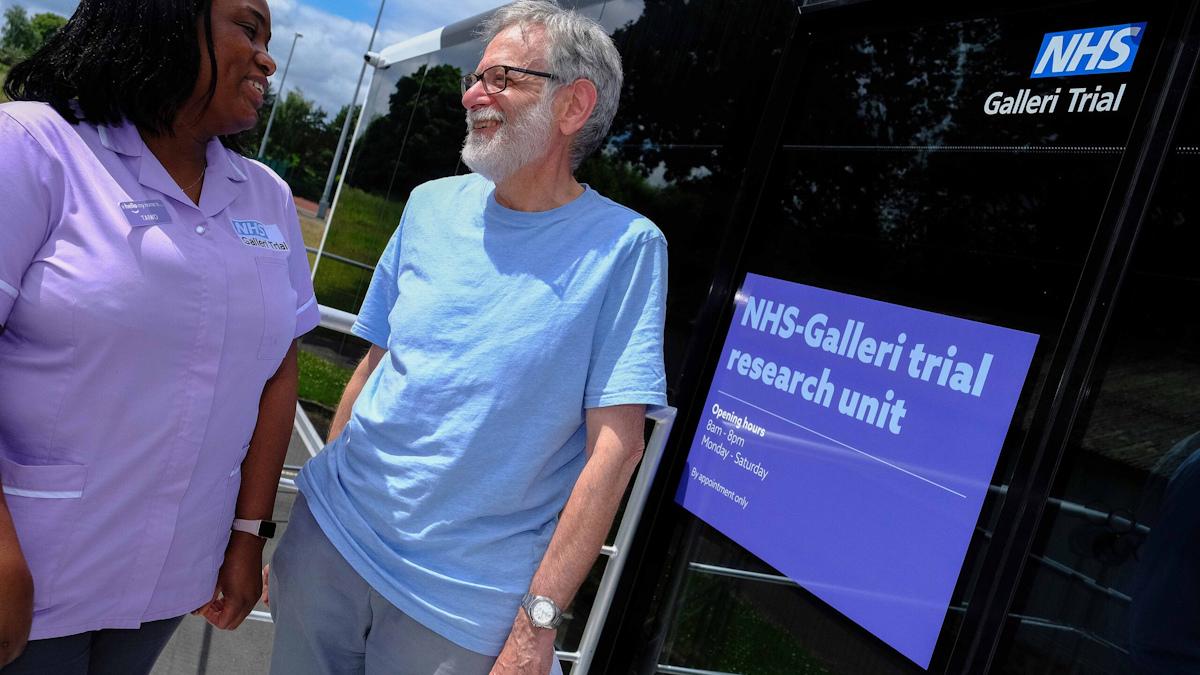Roche launches 'revolutionary' pathogen detection tech

Roche Diagnostics' cobas 5800 system
Roche has introduced the first test based on a new technology – called TAGS – that it believes could revolutionise testing for infectious diseases by allowing high-throughput detection to be carried out routinely in a hospital lab.
The TAGS technology – or Temperature-Activated Generation of Signal to give it its full name – allows up to 15 diagnostic targets to be detected from a single patient sample, and Roche's first launch is a test to screen for 12 respiratory viruses, including influenza A and B, COVID-19, and respiratory syncytial virus (RSV).
"Many respiratory illnesses share similar symptoms, making them difficult to diagnose," said Matt Sause, chief executive of Roche Diagnostics. "As respiratory outbreaks, combined with growing incidence of antibiotic resistance continue, getting an accurate and timely diagnosis is critical to providing the best care for patients and curbing transmission."
He added that the new test "can help clinicians identify specific respiratory viruses sooner, helping to speed up diagnosis and get the right care to patients."
TAGS is a form of widely used polymerase chain reaction (PCR) testing, which amplifies DNA or RNA from samples, layering in other diagnostic criteria like "colour, temperature, and data processing", according to Roche.
The system uses five fluorescence channels with three probes – one conventional and two TAGS probes – to differentiate three targets per channel, raising the typical number of targets that can be tested in a single sample from around four with conventional PCR.
The new test is compatible with Roche's cobas 5800, 6800, and 8800 molecular diagnostic analysers, which are widely used in hospitals and other clinical settings, without any need for upgrades.
The respiratory virus panel – called cobas Respiratory flex – is the first of a series of TAGS multi-assays that will be launched, all with the aim of speeding up diagnoses, guiding the best use of antimicrobial drugs, and saving lab time.
The system also allows clinicians to specify which pathogens to look for using the test. For example, they might use a targeted test in the winter months to find out if a typically healthy adult patient has flu or the COVID-19 virus SARS-CoV-2.
The cobas Respiratory flex panel is being launched in countries accepting CE-mark approval and will be filed for 510(k) approval by the US FDA in the fourth quarter. Its availability could help Roche offset declining sales of COVID-19-related sales of SARS-CoV-2 assays on the cobas 6800/8800 systems since the end of the pandemic.












